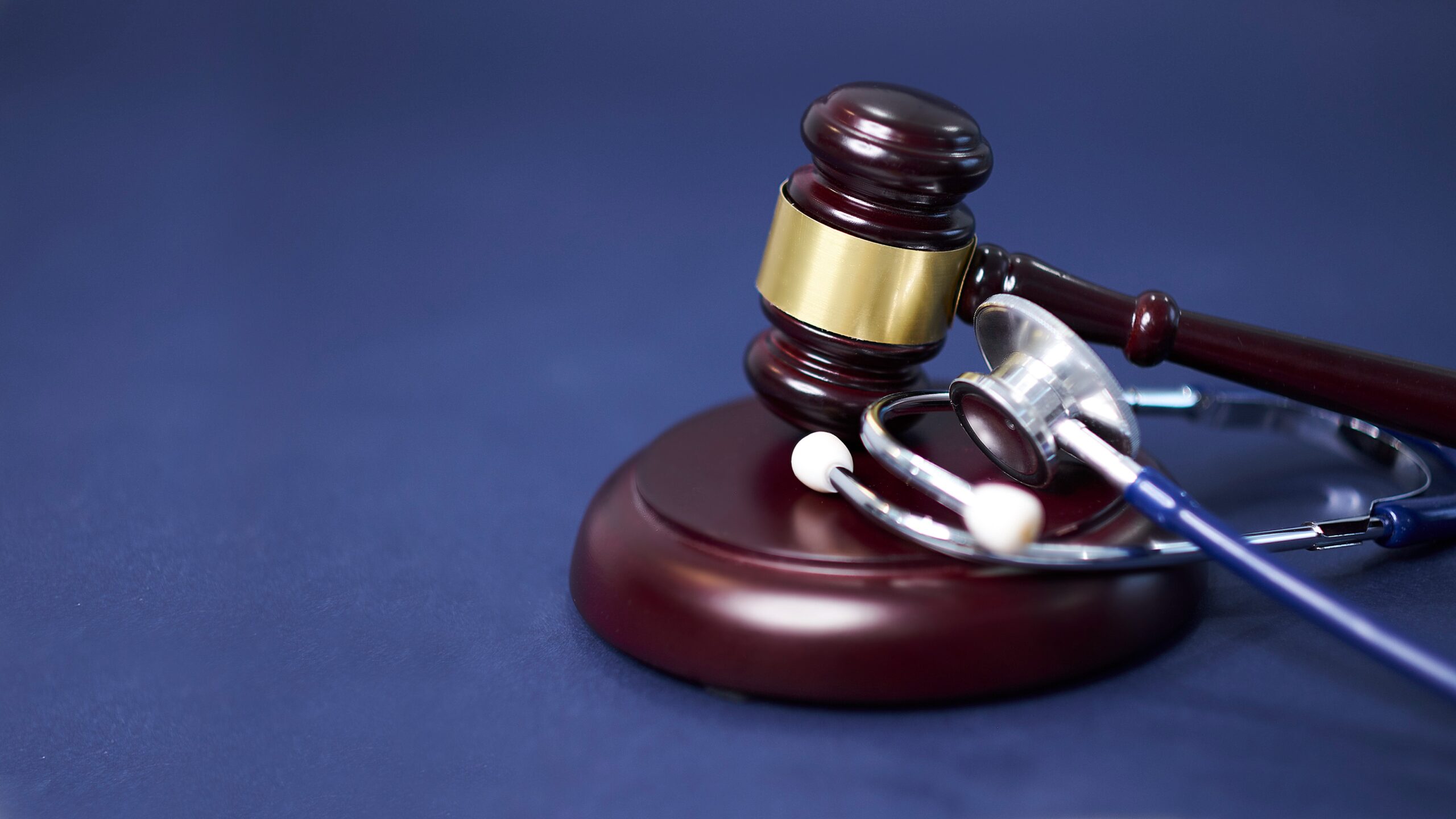Tackling the intricate realm of personal injury law, where ‘fighting for justice and fair compensation’…
Your Guide to Finding the Right Personal Injury Lawyer – Guest Post

Suffering an injury due to someone else’s negligence can upend your life in an instant. Beyond the physical pain and emotional trauma, you may face mounting medical bills, lost wages, and a long road to recovery. Navigating the complex legal landscape of personal injury claims can feel overwhelming, especially when you’re already grappling with the consequences of your injury.
Here’s where a skilled personal injury lawyer’s expertise becomes invaluable. With the right legal representation by your side, you can focus on healing while your attorney advocates for the compensation you deserve. However, locating the right personal injury lawyer can itself be daunting.
In this comprehensive guide, we’ll explore the critical steps involved in selecting the most suitable personal injury lawyer for your specific needs. From assessing your case’s complexity to researching potential lawyers, preparing for the initial consultation, and making an informed decision, we’ll equip you with the tools and knowledge needed to find the legal partner who will tirelessly fight for your rights.
Assessing Your Need for a Personal Injury Lawyer
Before embarking on your search, it’s essential to evaluate the complexity of your case and determine whether you require legal representation. While minor injuries with clear liability may not necessitate a lawyer, more intricate scenarios often benefit from professional expertise.
Scenarios where hiring a personal injury lawyer is highly recommended include:
- Severe or catastrophic injuries resulting in long-term disabilities or permanent impairments
- Cases involving complex liability issues or multiple parties
- Disputes with insurance companies over fair compensation
- Situations where the at-fault party’s insurance company denies liability
Even if your case seems straightforward, consulting with a lawyer can offer valuable insights and ensure you understand your legal rights and options.
Criteria for Choosing the Right Lawyer
the complexity and prevalence of personal injury cases in Atlanta, it is crucial to find a lawyer who specializes in this area of law. Personal injury law is a vast and nuanced field, covering various case types, including motor vehicle accidents, slip-and-fall incidents, medical malpractice, and product liability claims. Look for a Personal Injury Lawyers in Atlanta who specializes exclusively in personal injury law and has extensive experience handling cases similar to yours.
Choosing a reputable personal injury lawyer in Atlanta can heighten your chances of obtaining fair compensation for injuries, medical expenses, lost wages, and other damages resulting from someone else’s negligence. These skilled legal professionals can navigate the intricate legal system, build a strong case on your behalf, and advocate for your rights every step of the way.
Specialization and Experience in Personal Injury Law
Personal injury law is a vast and nuanced field, encompassing various types of cases, from motor vehicle accidents and slip-and-fall incidents to medical malpractice and product liability claims. Look for a lawyer who specializes exclusively in personal injury law and has extensive experience handling cases similar to yours.
Local vs. National Firms: Pros and Cons
When it comes to personal injury lawyers, you’ll often have the choice between local firms and national entities. Each option has its advantages and drawbacks:
Local Firms:
- Familiarity with local courts, judges, and opposing counsels
- Personalized attention and accessibility
- Potential cost savings compared to larger firms
National Firms:
- Extensive resources and larger legal teams
- Experience handling high-stakes, complex cases
- Ability to leverage a broader network of experts and investigators
Consider your case’s complexity, potential settlement amount, and your personal preferences regarding accessibility and communication when evaluating these options.
Understanding Lawyer Fees and Payment Structures
Personal injury lawyers typically operate on a contingency fee basis, meaning they receive a percentage of the settlement or award if your case is successful. This arrangement ensures you don’t have to pay any upfront legal fees, reducing the financial burden during an already challenging time.
However, it’s essential to understand the specific fee structure proposed by each lawyer. Some lawyers may also charge additional fees for expenses like expert witness fees or court costs.
Alternatively, some personal injury lawyers may offer hourly rates, which can be more suitable for less complex cases or those with a higher likelihood of a quick resolution.
Researching Potential Lawyers
With a clear understanding of your criteria, it’s time to begin your search for the right personal injury lawyer. Here are some effective strategies:
Peer Reviews and Client Testimonials
Peer reviews from other lawyers and client testimonials can provide invaluable insights into a personal injury lawyer’s reputation, communication style, and track record of success. Look for reviews on reputable legal directories, as well as the lawyer’s website and social media profiles.
Important Certifications and Accreditations
While not mandatory, certifications and accreditations from respected legal organizations can be indicators of a lawyer’s expertise and commitment to their profession. Some notable certifications include:
- Board Certification in Personal Injury Trial Law from the National Board of Trial Advocacy
- Membership in the Million Dollar Advocates Forum or the Multi-Million Dollar Advocates Forum
- Recognition from organizations like Best Lawyers, Super Lawyers, or Martindale-Hubbell
The Initial Consultation: What to Expect and Prepare
After narrowing down your potential lawyers, schedule initial consultations to better evaluate their suitability for your case. Here’s what to expect and how to prepare:
Documents and Information to Bring
To ensure a productive consultation, gather all relevant documents and information related to your case, such as:
- Police reports or incident reports
- Medical records and bills
- Insurance policy information
- Any correspondence with insurance companies or the at-fault party
- Photographs or video evidence of the incident or your injuries
- Contact information for potential witnesses
Having this information readily available will allow the lawyer to provide a more accurate assessment of your case and potential legal strategies.
Assessing the Lawyer’s Communication Style and Compatibility
While expertise and experience are crucial, it’s also essential to consider the lawyer’s communication style and overall compatibility with your needs and preferences. During the consultation, pay attention to how the lawyer explains complex legal concepts and responds to your questions.
A good personal injury lawyer should be patient, attentive, and able to communicate in a clear and understandable manner. They should also demonstrate a willingness to address your concerns and work collaboratively with you throughout the legal process.
Making the Decision
After your initial consultations, it’s time to evaluate the information you’ve gathered and make an informed decision about which lawyer to hire. Here are some key factors to consider:
Interpreting the Lawyer’s Track Record of Success
While past results don’t guarantee future outcomes, a lawyer’s track record can provide valuable insights into their level of expertise and ability to secure favorable settlements or verdicts. Look for lawyers who have a history of handling cases similar to yours and achieving successful outcomes.
Understanding the Lawyer’s Approach to Client Relationships
A personal injury case can be a lengthy and emotionally taxing process. Look for a lawyer who values open communication, provides regular updates, and demonstrates a genuine commitment to your well-being and best interests throughout the legal journey.
Signs of a Trustworthy and Committed Personal Injury Lawyer
Trustworthiness and commitment are essential qualities to look for in a personal injury lawyer. Some indicators of these traits include:
- Clear and transparent communication about fees and potential case outcomes
- Willingness to answer your questions patiently and thoroughly
- Prompt responsiveness to your inquiries and concerns
- A professional and ethical approach to handling your case
- Genuine empathy and understanding of the challenges you’re facing
After Hiring Your Lawyer: Next Steps
Once you’ve selected your personal injury lawyer, it’s essential to understand what comes next and how to foster a productive working relationship.
Overview of the Client-Lawyer Working Relationship
After signing a retainer agreement, your lawyer will begin investigating your case, gathering evidence, and building a legal strategy. Throughout this process, open communication and collaboration will be key.
Your lawyer will keep you informed of significant developments and may seek your input or additional information as needed. It’s essential to respond promptly to requests and maintain open lines of communication to ensure your case progresses smoothly.
Timeline Expectations and Milestones in a Personal Injury Case
While the duration of a personal injury case can vary depending on its complexity, it’s important to have realistic timeline expectations. Your lawyer should provide you with an estimated timeline and outline key milestones, such as:
- The investigation and evidence-gathering phase
- Filing the initial complaint or demand letter
- The discovery process (exchanging information with the opposing party)
- Attempts at negotiating a settlement
- Preparing for trial (if a settlement cannot be reached)
- The trial itself (if necessary)
- Appeals (if applicable)
Understanding these milestones will help you stay informed and manage your expectations throughout the legal process.
Communication and Updates: Frequency and Modes
Effective communication is vital to a successful client-lawyer relationship. During your initial consultation, discuss your preferences for communication frequency and modes. Some lawyers may provide regular updates via email, phone calls, or in-person meetings, while others may use a secure online client portal.
Regardless of the method, ensure that your lawyer’s communication approach aligns with your needs and that you feel comfortable reaching out with questions or concerns as they arise.
FAQs
How long do I have to decide to hire a lawyer after an accident?
The statute of limitations for filing a personal injury claim varies by state, but it’s generally between one and three years from the date of the accident or injury. However, it’s advisable to consult with a lawyer as soon as possible to ensure you don’t miss any critical deadlines and to preserve important evidence.
What should I do if I’m not satisfied with my lawyer’s performance?
If you’re dissatisfied with your lawyer’s performance or communication, start by addressing your concerns directly with them. If the issues persist, you have the right to terminate the attorney-client relationship and seek new representation. Be aware that you may be responsible for any outstanding fees or costs incurred up to that point.
Are there any upfront costs involved in hiring a personal injury lawyer?
Most personal injury lawyers work on a contingency fee basis, which means they don’t charge any upfront fees. Instead, they receive a percentage of the settlement or award if your case is successful. However, you may be responsible for certain expenses, such as court filing fees or expert witness costs, regardless of the outcome.
Suffering a personal injury due to someone else’s negligence is a challenging and often traumatic experience. However, with the right legal representation, you can increase your chances of receiving fair compensation and holding the responsible party accountable.
Finding the right personal injury lawyer requires careful consideration and research, but the effort is well worth it. By following the guidelines outlined in this guide, you’ll be better equipped to navigate the process with confidence, from assessing your needs and researching potential lawyers to preparing for consultations and making an informed decision.
Remember, the key is to prioritize factors like expertise, communication, and compatibility. A skilled personal injury lawyer will not only have a deep understanding of the relevant laws and legal strategies but will also demonstrate a genuine commitment to your well-being and best interests throughout the legal journey.

